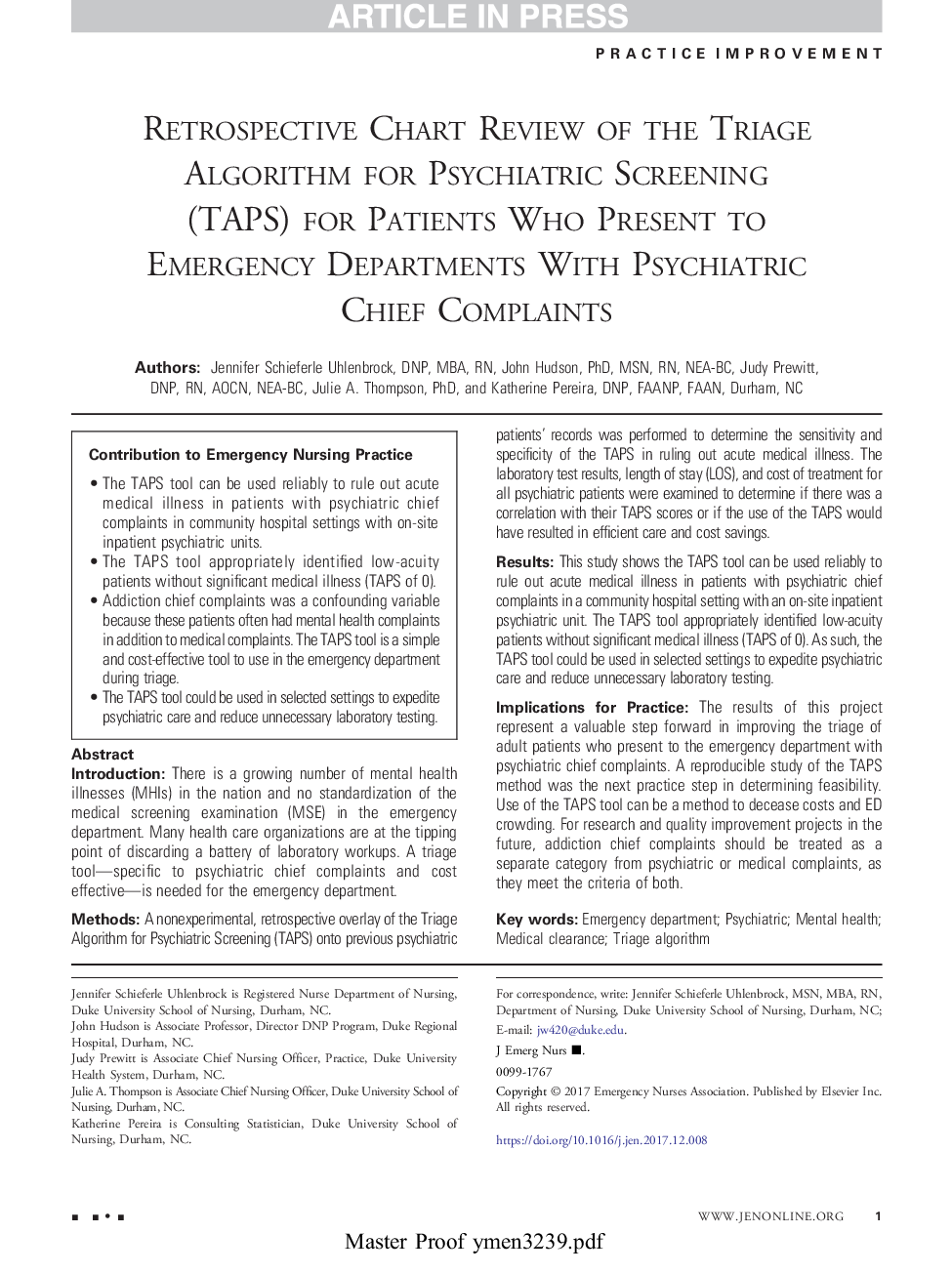| Article ID | Journal | Published Year | Pages | File Type |
|---|---|---|---|---|
| 10158757 | Journal of Emergency Nursing | 2018 | 7 Pages |
Abstract
The results of this project represent a valuable step forward in improving the triage of adult patients who present to the emergency department with psychiatric chief complaints. A reproducible study of the TAPS method was the next practice step in determining feasibility. Use of the TAPS tool can be a method to decease costs and ED crowding. For research and quality improvement projects in the future, addiction chief complaints should be treated as a separate category from psychiatric or medical complaints, as they meet the criteria of both.Contribution to Emergency Nursing Practice
- The TAPS tool can be used reliably to rule out acute medical illness in patients with psychiatric chief complaints in community hospital settings with on-site inpatient psychiatric units.
- The TAPS tool appropriately identified low-acuity patients without significant medical illness (TAPS of 0).
- Addiction chief complaints was a confounding variable because these patients often had mental health complaints in addition to medical complaints. The TAPS tool is a simple and cost-effective tool to use in the emergency department during triage.
- The TAPS tool could be used in selected settings to expedite psychiatric care and reduce unnecessary laboratory testing.
- The TAPS tool can be used reliably to rule out acute medical illness in patients with psychiatric chief complaints in community hospital settings with on-site inpatient psychiatric units.
- The TAPS tool appropriately identified low-acuity patients without significant medical illness (TAPS of 0).
- Addiction chief complaints was a confounding variable because these patients often had mental health complaints in addition to medical complaints. The TAPS tool is a simple and cost-effective tool to use in the emergency department during triage.
- The TAPS tool could be used in selected settings to expedite psychiatric care and reduce unnecessary laboratory testing.
Related Topics
Health Sciences
Nursing and Health Professions
Emergency Rescue
Authors
Jennifer DNP, MBA, RN, John PhD, MSN, RN, NEA-BC, Judy DNP, RN, AOCN, NEA-BC, Julie A. PhD, Katherine DNP, FAANP, FAAN,
